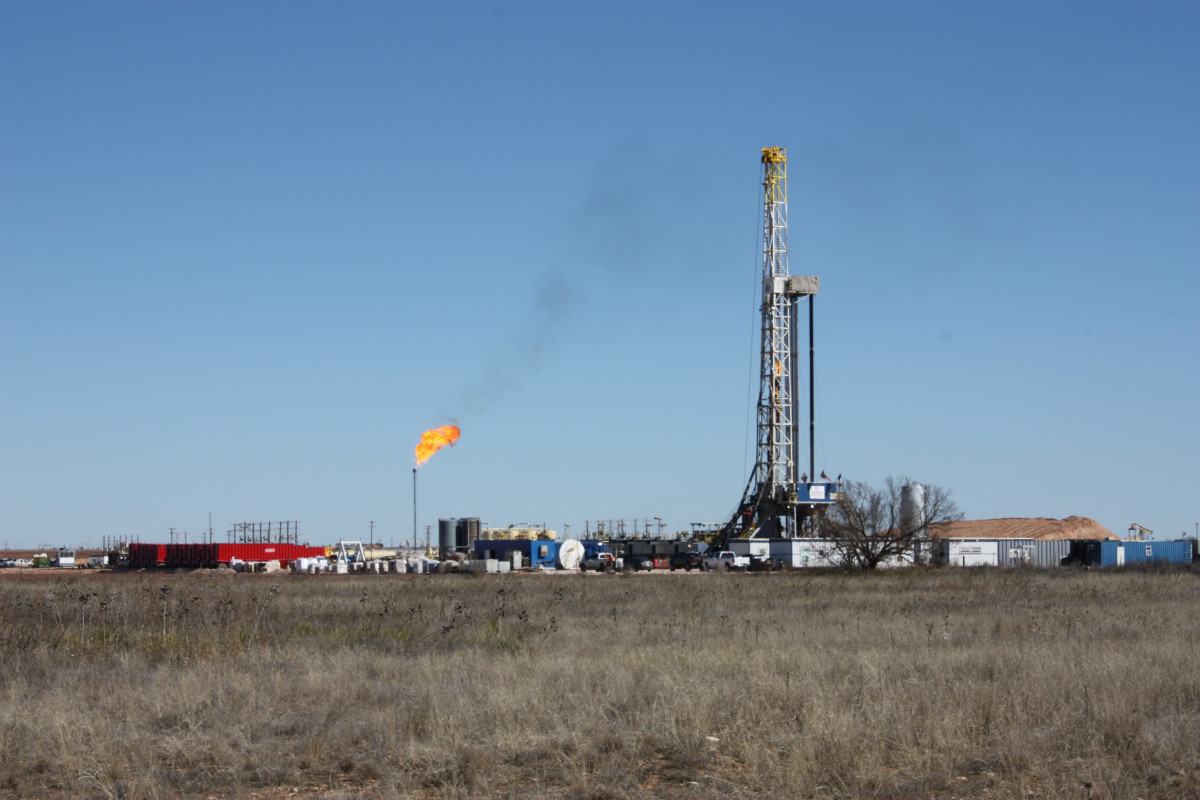EU should pressure US over gas production’s climate impact – former US energy official
Clean Energy Wire: How has the shale boom in the US changed the international energy landscape and US relations with other countries?
Samantha Gross: The shale boom has completely re-written the energy landscape. If you look back before it all started, when we talked about ‘peak oil’ it used to mean peak supply. Now, it means peak demand. It’s just completely changed the narrative. If we’re going to move away from gas, then the scarcity and resulting high prices will not be the reason.
As far as US relations with other countries, it has gotten interesting. We don’t rely on some of those countries for supply in nearly the way we used to. Over the years we’ve pulled back from importing more oil. At the same time, China’s demand and that of other parts of developing Asia has really just exploded. So when you think about who plays the role of soaking up supply, it’s completely shifted away from us and over to Asia.
Something that this administration in particular isn’t thinking about enough is that, just because we have a lot of oil and gas here and we’re now the biggest producer, we’re somehow insulated from global markets. Oil is a globally traded commodity, it’s priced on global markets and that price will affect us, whether we produce it here or not. It does change how we relate to the world and how the world relates to us. However, it’s not this total pullback that I think a lot of the American public would like to see.
Is this where the tag ‘energy independence’ comes in?
Energy independence has been a popular tagline for a long time and the US is in many ways is approaching it, but I don’t think it is necessarily even a good definition. As we export, we also continue to import a lot of oil, because our light oil is not a good fit for our refineries.
What energy independence – or the Trumpian term ‘energy dominance’ – means to people walking down the street, compared to what it means to people who understand the energy system is really different. Being completely energy independent may not even be that noble of a goal, because the whole system is interdependent. Variety is at the centre of energy security, which is a more useful phrase than independence.
How have US international relations in terms of energy and climate, especially with Europe, changed with the Trump administration?
I don’t think the policy has changed so much as the rhetoric has. The term ‘energy dominance’ has a very negative connotation to it. The US energy boom is by and large good for the energy markets, because it’s a source of non-political energy. We’re not set up to use our energy resources politically. We have decisions made by individual companies, made to benefit them. However, this particular president has really wanted to do that. He views energy as a tool that he can use in his trade negotiations.
With respect to Europe, particularly the US gas boom has been really good, because it offers an alternative option to Russian gas. And you don’t even have to import very much of it. The option value of it existing I think is really important. Also, US gas contracts are more flexible than others in the past. The entire LNG market is loosening up a bit, moving away from long term contracts and destination clauses and that is also good for Europe. Russian pipeline gas is likely to be cheaper, but just having that other source to turn to makes a big difference in leverage when it comes to negotiations with Russia.
The EU is working on a methane emissions strategy, which could in the future influence where the bloc imports its gas from, based on the climate footprint. Is that a worry for the US government or industry?
Even without the EU, the large companies here care a lot about methane emissions. They realise that high methane emissions can completely ruin not just its reputation, but also its actual ranking as the lowest carbon fossil fuel. It’s extremely important to keep methane emissions down if you’re going to reap any benefits out of natural gas. Those who care a bit less tend to be smaller operators who are not as concerned about public backlash.
In my opinion, we really need to do this. It is low-hanging fruit, something we know how to do. The technology to detect methane emissions has gotten so much better. It is extremely frustrating to see what this administration has done in terms of pushback on the idea of having federal methane regulation. If the government was really worried about European demand being connected to bringing emissions down, one way or another you would think they would do something about it. They haven’t, and that could be an indication that they’re not really worried.
Another thing is we still flare a lot of gas, because we’re producing a lot of associated gas with oil extraction, where we don’t have the infrastructure to transport it off. In some cases, it is simply done because the gas sells for so little, it’s just not economical to send it to market, and the state of Texas is allowing that in many cases. It’s appalling. If you’re going to produce that oil and you can’t be bothered to ship away the associated gas, find another line of work. I would totally welcome the EU pressuring the US at the federal and state levels over this.
I would totally welcome the EU pressuring the US at the federal and state levels over this.
You talked about Trump using energy as a tool in negotiations with other countries. When Trump threatened to impose tariffs on the EU car industry, he and then European Commission President Juncker in 2018 made an agreement saying the EU would buy more soy and liquefied natural gas.
That is exactly the kind of thing he wants to do. He likes that tit for tat. That is the way he thinks.
However, in that moment, was it something the two had the power to promise? After all, it is about commercial decisions in a free market.
Well, it’s not Trump’s to sell, but he definitely has people behind him who would be delighted to sell. So if the EU follows through and there are European buyers, it works. We have more gas than we know what to do with here. The question is more whether Europe can promise to buy it.
So is LNG trade a good tool to smooth tensions between the two governments?
It’s a bit on a shaky foundation, because I like the idea of having suppliers out there who are making supply-and-demand business decisions, not based on politics. I think it is a good thing to have a kind of non-political supply in the market and make decisions based on that.
More broadly, if in government negotiations you look at everything as a business transaction – you scratch my back, I scratch yours – that’s not how we should wield power, we have a whole range of other options to do so.
The administration has used the tag of ‘Freedom Gas’, bringing a political dimension into the trade. What is your view on that?
I am frustrated by it, because I would like to see our energy supply non-political. Unlike in other parts of the world, our supply is not in the hands of government, and that is an advantage to us and the world, because it does not get caught up in the political winds. That is a good we can supply to the world.
You scratch my back, I scratch yours – that’s not how we should wield power, we have a whole range of other options to do so.
What do you think of the proposal by Democratic presidential candidates like Bernie Sanders to introduce a comprehensive fracking ban?
On the Democratic side there is this focus on reducing supply. I don’t think that this is necessarily the right way to do it at this time. If we reduce our own supply faster than we reduce our own demand, we are just going to import more and might not actually reduce emissions. If we reduce emissions attributable to the US, but raise emissions elsewhere, then we’ve done exactly nothing. I don’t want to do anything that accidentally results in more emissions. I am in favour of doing our best to clean up our own production, but I’m not in favour of a fracking ban or an export ban.
US oil and gas companies are easy to vilify. People know their names, they have to give them money when they fill up their cars, but I don’t think they’re always the right bogeyman. We need to keep our eye on the price: emissions.
How do you see the relationship of the EU and the US on energy and climate evolving over the next decade?
I hope the interdependent relationship continues. I don’t want to see the energy relationship politicised, but rather see us viewed as a trusted partner on energy security. Particularly with respect to gas. There is so much gas here and it makes sense for us to export, especially if it is associated gas that we might otherwise flare. We would love to send you that gas, to be burned instead of coal in power pants. I hope the relationship doesn’t get mired in politics or some tit-for-tat commercial relationship. I worry about that with Trump, because he sees it as his trump card and he always wants to play it. I worry about him playing it too often.
The research for this article was supported through a Kellen Fellowship by the American Council on Germany.



